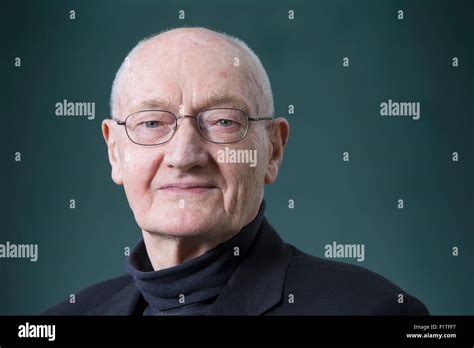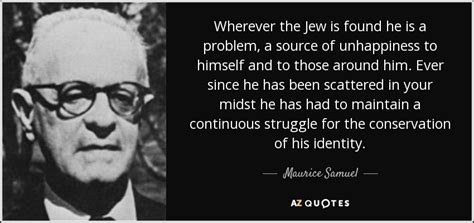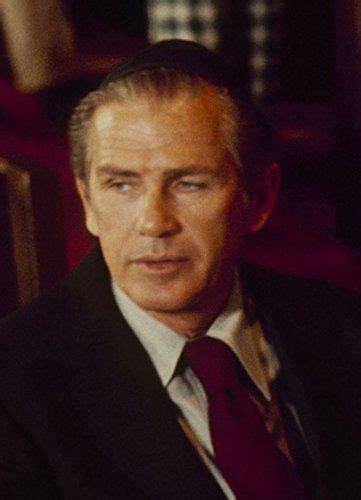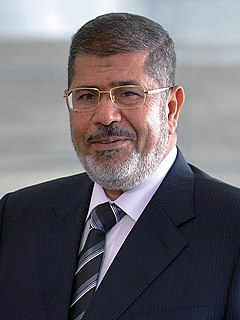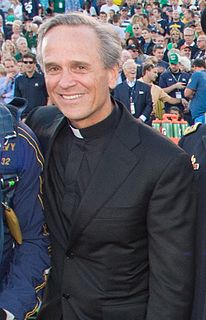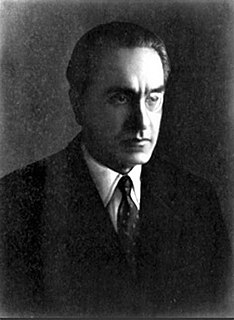Top 1200 Educational Institutions Quotes & Sayings - Page 3
Explore popular Educational Institutions quotes.
Last updated on November 24, 2024.
When a republic's most venerable institutions no longer operate as they were intended, it becomes possible for small cabals to usurp power, and, while keeping the forms, corrupt the function of those institutions for their own ends. Looking at things that way, the George W. Bush presidency has been both result and symptom of the decadence of America's constitutional mechanisms.
There will be no room, here, for the smug myopia which views American civilization as the final solution to all world problems; which recommends our institutions for universal adoption and turns away with contempt from the serious study of the institutions of peoples whose civilizations may seem to us to be materially less advanced.
We have throughout our history been tested when it comes to the institutions of our democracy. And thank God our forefathers were smart enough to establish a government of checks and balances to make sure that power cannot be centralized in any one branch of government. And those institutions have proven themselves.
Every politically controlled educational system will inculcate the doctrine of state supremacy sooner or later. . . . Once that doctrine has been accepted, it becomes an almost superhuman task to break the stranglehold of the political power over the life of the citizen. It has had his body, property and mind in its clutches from infancy. An octopus would sooner release its prey. A tax-supported, compulsory educational system is the complete model of the totalitarian state.
The institutions that claim to represent God, when they are not ignored altogether, are treated like other human institutions that have to earn their right to a hearing by the value of what they say, and not by virtue of who is saying it. Today, authority has to earn respect by the intrinsic value of what it says, not by the force of its imposition.
A living system continually re-creates itself. But how this occurs in social systems such as global institutions depends on our level of awareness, both individually and collectively... As long as our thinking is governed by industrial, "machine age" metaphors such as control, predicatbility, and "faster is better", we will continue to re-create institutions as we have, despite their increasing disharmony with the larger world.
To create a world in which life can flourish and prosper we must replace the values and institutions of capitalism with values and institutions that honor life, serve life's needs, and restore money to its proper role as servant. I believe we are in fact being called to take a step to a new level of species consciousness and function.
The impulses of my heart are the voice of Nature, which is never mistaken. The institutions that stand in my way are man-made and are only arbitrary conventions to which I have never given my consent. In trampling these institutions underfoot, I shall have the double pleasure of satisfying my inclinations and of believing myself a hero
Thus, the capital owner is not a parasite or a rentier but a worker - a capital worker. A distinction between labor work and capital work suggests the lines along which we could develop economic institutions capable of dealing with increasingly capital-intensive production, as our present institutions cannot.
It is equally unreasonable to run a university as a "participatory democracy," the approach to governance that once existed in Europe. That approach in European institutions of higher learning was appealing to professors because it was democratic. But those institutions also suffered because they lacked an executive decision-making process; making changes became virtually impossible.
When people criticize me for not having any respect for existing structures and institutions, I protest. I say I give institutions and structures and traditions all the respect that I think they deserve. That's usually mighty little, but there are things that I do respect. They have to earn that respect. They have to earn it by serving people. They don't earn it just by age or legality or tradition.
As a Londoner who delights in the capital's dynamism and diversity, I none the less agree with Ken Livingstone that London hosts too great a share of our national institutions. Where sensible, more should be located in other cities, particularly new or reformed institutions that involve new facilities.
Local assemblies of the people constitute the strength of free nations. Municipal institutions are to liberty what primary schools are to science: they bring it within the people's reach, and teach them how to use and enjoy it. A nation may establish a system of free government, but without the spirit of municipal institutions it cannot have the spirit of liberty.
I'm very committed to its educational institutions, including my alma mater Central Falls High School's drama program, because I know that's what got me my start. I do everything I can to keep it alive since it made me feel like I had something to give to the world. I also support the Segue Institute for Learning, a charter school in Central Falls run by a friend of mine that my niece attends. I'm committed to that because of its proven results. They have the highest math scores of any charter school in Rhode Island.
Institutions develop because people put a lot of trust in them, they meet real needs, they represent important aspirations, whether it's monasteries, media, or banks, people begin by trusting these institutions, and gradually the suspicion develops that actually they're working for themselves, not for the community.
Right, we've got these institutions of media, these financial institutions, we have the means of distribution, we have the means of production, we have all these markets and maxims in place. How do we alter the consciousness, the fundamental unifying field? How do we influence change on that level to all of the world?
Talk of imminent threat to our national security through the application of external force is pure nonsense. Our threat is from the insidious forces working from within which have already so drastically altered the character of our free institutions - those institutions we proudly called the American way of life.
In part, it's almost surely a failure of modern education, whether K through 12 or higher education, or really both. Barack Obama went to Ivy League institutions like Columbia, which are reputed to be among America's top colleges. And yet, this very recent product of those American institutions is not publicly articulating an appreciation of the American founding or the founders and their vision for America.
The reality in Washington D.C. is if you live in Tenleytown versus if you live in Anacostia, you get two wildly different educational experiences. It’s the biggest social injustice imaginable. What we are allowing to happen in this day and age, we are still allowing the color of a child’s skin and the Zip code they live in to dictate their educational outcome, and therefore their life outcome. We are robbing them every single day of their futures. And everybody in this country should be infuriated by that.
When the institutions of money rule the world, it is perhaps inevitable that the interests of money will take precedence over the interests of people. What we are experiencing might best be described as a case of money colonizing life. To accept this absurd distortion of human institutions and purpose should be considered nothing less than an act of collective, suicidal insanity.
I always feel we have to work both outside and inside of our existing institutions, so we have to really be careful about who we vote for and examine carefully our institutions and what they're meant to do and how they're being violated. I also think we need movements from below that oppose what Trump administration and administrations like it are doing to ordinary people.
Over the longer term, the institutions and powers of the EU will continue to expand and certain policymaking powers, heretofore vested in the member states, will be delegated or transferred to, or pooled and shared with EU institutions. As a result, the sovereignty of the member states will increasingly be eroded.
It is no limitation upon property rights or freedom of contract to require that when men receive from government the privilege of doing business under corporate form... they shall do so under absolutely truthful representations... Great corporations exist only because they were created and safeguarded by our institutions; and it is therefore our right and duty to see that they work in harmony with these institutions.
We Jews are accused of being destroyers: whatever you put up, we tear down. It is true only in a relative sense. We are not iconoclasts deliberately: we are not enemies of your institutions simply because of the dislike between us. We are a homeless mass seeking satisfaction for our constructive instincts. And in your institutions we cannot find satisfaction.
Silicon Valley, "the largest legal creation of wealth in history," was built largely by unprofessional amateurs using math, sand, and the institutions of freedom. The Soviet Union had the greatest mathematicians on earth, and plenty of sand, but without the institutions of freedom their brilliant mathematicians were not empowered to create those devices that are changing the world.
To restore confidence in our markets and our financial institutions so they can fuel continued growth and prosperity, we must address the underlying problem. The federal government must implement a program to remove these illiquid assets that are weighing down our financial institutions and threatening our economy.
...it would be a mistake...to ascribe to Roman legal conceptions an undivided sway over the development of law and institutions during the Middle Ages... The Laws of Moses as well as the laws of Rome contributed suggestions and impulse to the men and institutions which were to prepare the modern world; and if we could have but eyes to see... we should readily discover how very much besides religion we owe to the Jew.
FinCEN directs financial institutions to file suspicious activity reports (SARs) to inform law enforcement of certain types of cyber-enabled crime. As the agency charged with protecting the United States from financial crime, FinCEN's guidance does not deem financial institutions who process such transactions to be involved in a criminal activity.
I find it perfectly consistent for libertarians to operate on the municipal or county level, where they are close to the people and where they may have a party or a federation that is made up of the social institutions, the residual social institutions that still remain, over and beyond what the State has managed to preempt and absorb.
I remember in 2000, when President Clinton came to Cartagena just before Plan Colombia started, the country was on the verge of becoming a failed state. Today, we are one of the most solid democracies, where institutions are working, where the scandals such as false positives have come to light because of those functioning institutions.
Certainly, by providing individuals coming out of institutions with ways to become productive citizens, we reduce recidivism. What that means is we reduce crime. There are fewer victims when individuals have options - when they have job skills, when they have life skills, we break the cycle of children following their parents into institutions.
There is no reason to accept the doctrines crafted to sustain power and privilege, or to believe that we are constrained by mysterious and unknown social laws. These are simply decisions made within institutions that are subject to human will and that must face the test of legitimacy. And if they do not meet the test, they can be replaced by other institutions that are more free and more just, as has happened often in the past.
Informal relationships are not mere minor interstitial supplements to the major institutions of society. These informal relationships not only include important decision-making processes, such as the family, but also produce much of the background social capital without which the other major institutions of society could not function nearly as effectively as they do.
My conception of freedom. — The value of a thing sometimes does not lie in that which one attains by it, but in what one pays for it — what it costs us. Liberal institutions cease to be liberal as soon as they are attained: later on, there are no worse and no more thorough injurers of freedom than liberal institutions.
When we think of globalization we are thinking in part of structures and institutions that have been developed over time and that have allowed us to become more interdependent and interrelated. But the development, the extraordinary development, of those structures and institutions has not fundamentally transformed our humanity. We are still those animals with fears and anxieties and insecurities in the face of death and dread and disappointment and disease.
Of all the joint ventures in which we might engage, the most productive, in my view, is educational exchange. I have always had great difficulty-since the initiation of the Fulbright scholarships in 1946-in trying to find the words that would persuasively explain that educational exchange is not merely one of those nice but marginal activities in which we engage in international affairs, but rather, from the standpoint of future world peace and order, probably the most important and potentially rewarding of our foreign-policy activities.
I am far more concerned about policies of the Democratic administration and Democratic Party that infringe on the rights of religious institutions and practices and open the door for using taxpayer dollars for abortions, to which many Americans have profound moral objections. Those are steps that would show a lack of respect for Catholics and their institutions.
The State is a professional apparatus that sets itself apart from the people and apart from the institutions that the people themselves create. It's a monopoly on violence that manages and institutionalizes social activities. The people are perfectly capable of managing themselves and creating their own institutions.
But would the young do any better under the same circumstances? Will they do any better when their turns come? The answer is that youth would not and cannot, given the financial and economic framework within which the elders are operating. While the moral convictions of individuals are important in the long run, it is institutions that determine the immediate course of events - particularly the institutions of finance.
If Confucius can serve as the Patron Saint of Chinese education, let me propose Socrates as his equivalent in a Western educational context - a Socrates who is never content with the initial superficial response, but is always probing for finer distinctions, clearer examples, a more profound form of knowing. Our concept of knowledge has changed since classical times, but Socrates has provided us with a timeless educational goal - ever deeper understanding.
Rather, the master question from which the mission of education research is derived: What should be taught to whom, and with what pedagogical object in mind? That master question is threefold: what, to whom, and how? Education research, under such a dispensation, becomes an adjunct of educational planning and design. It becomes design research in the sense that it explores possible ways in which educational objectives can be formulated and carried out in the light of cultural objectives and values in the broad.
We can't have extraordinary dynamism, innovation, and change in the economy and expect to have predictability and stability in our personal lives. It's not as if there are these big, giant institutions existing between us and the economy. In fact, these institutions have become tissue-thin. There is no mediation anymore. We are the economy; the economy is us.







